Quick Access: RWTH Aachen University | Universität Bayreuth | Humboldt University of Berlin | Universität Bremen | TU Darmstadt | Technische Universität Dresden | University of Duisburg-Essen | TU Bergakademie Freiberg | Universität Hamburg | Technische Hochschule Ingolstadt (THI) | Karlsruhe Institute of Technology (KIT) | University of Konstanz | Hochschule Anhalt (Köthen) | Universität zu Lübeck | LMU Munich | Bundeswehr University Munich | University of Oldenburg | OFFIS – Institute for Information Technology (Oldenburg) | Universität Potsdam | Saarland University and German Research Center for Artificial Intelligence (DFKI) | University of Siegen | Ulm University | Universität Würzburg

RWTH Aachen University
Media Computing Group
Jan Borchers – hci.rwth-aachen.de
Headed by Prof. Dr. Jan Borchers, we work in Human-Computer Interaction (HCI). Grounded in Computer Science, we develop and study new interaction theories, techniques, and systems in areas like personal digital fabrication and personal design, tangible, mobile, and wearable user interfaces, interactive textiles, multitouch tables and interactive surfaces, augmented reality, interaction with AI, and visual coding environments. Our goal is to make the Brave New World of interactive technologies useful by making it usable. Since starting in October 2003, we have become one of Germany’s best-published research groups at CHI, the premier international academic conference in the field.

Universität Bayreuth
Mobile Intelligent User Interfaces
Daniel Buschek – https://www.hciai.uni-bayreuth.de/
We conduct research at the intersection of Human-Computer Interaction (HCI) and Artificial Intelligence (AI) with two goals: AI for better UIs: Improving user interfaces through the use of computational methods to make digital technology more effective, efficient, and expressive to use. Better UIs for AI: Making AI systems interactive to enable humans to better explore, steer, and apply AI, and to extend human capabilities in challenging tasks. Together, we thus explore AI as a tool to empower people instead of replacing them.
Humboldt University of Berlin
Human-Computer Interaction for Scientific Software
Thomas Kosch – https://cognisense.group/

Universität Bremen

Digital Media Lab, TZI
Rainer Malaka – tzi.de & dm.tzi.de
The Center for Computing Technologies (TZI) at the University of Bremen conducts research at the core of a massive societal trend: The digital revolution, which affects all areas of our lives. Important research questions include: What kind of technologies will we have in 10 to 20 years? How can we make sure that they will be safe, dependable, and beneficial for society? And most of all: How can technology serve humans–instead of replacing them? TZI has conducted research in these areas since its foundation in 1995, working on approximately 120 projects per year. One main goal is to transfer results from basic research to industry as quickly as possible in order to generate the greatest benefits for society. The knowledge generated in our projects has already been applied in a wide range of areas such as healthcare, telecommunication, automotive industry, and “smart homes.” This is made possible by encouraging interdisciplinary cooperation of scientists in different fields. On average, about 150 employees from various areas at the University of Bremen are TZI members. In addition, many projects are based on international cooperation with other research institutions. TZI focuses on two main research areas: „Everyday Activity Science and Engineering Innovation” and „Empowering Digital Media“.
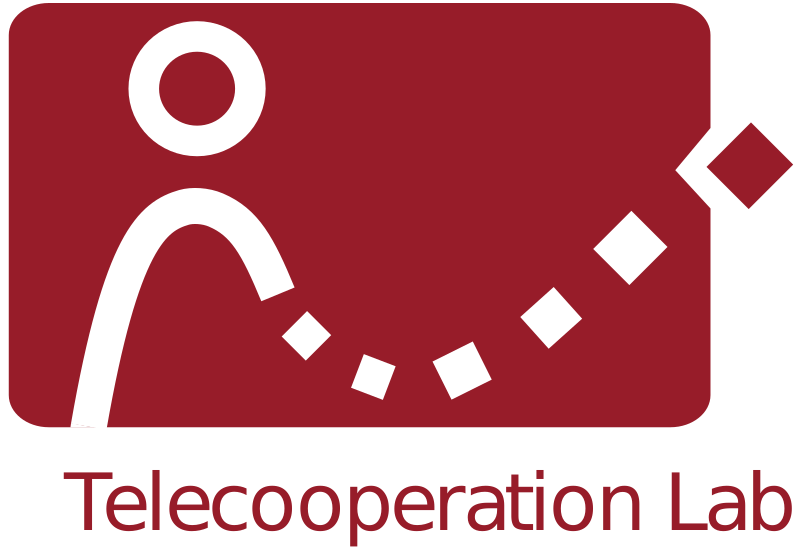
TU Darmstadt
Telecooperation Lab
Max Mühlhäuser – www.teamdarmstadt.de
Telecooperation Lab (TK) at Darmstadt Technical University, Department of Computer Science, researches concepts and methods for human-centered smart spaces of all sizes: from personal cyber workstations and intelligent meeting rooms to smart cities and intelligent, resilient infrastructures. Our unique strength is our ability to combine different research areas in support of Smart Spaces: advanced networking (e.g. Edge Computing and IoT platforms), applied AI (e.g. Federated Assistance and Process Mining), HCI (e.g. AR/VR and Tangible 3D-Printed Interaction) and cybersecurity (e.g. Privacy and Trust). Prof. Dr. Max Mühlhäuser is heading this group together with several senior researchers and group leaders. We coordinate a doctoral school (DFG Research Training Group) on Privacy and Trust for Mobile Users, play a major role in the national cooperative research center on the Future Internet and conduct various research projects funded by the EU, federal and state ministries, and industry.
Group of Human-Computer Interaction
Jan Gugenheimer
PEASEC – Science and Technology for Peace and Security
Christian Reuter – https://peasec.de/
Advances in science and technology, esp. in information technology, play a crucial role in the context of peace and security. The Chair of Science and Technology for Peace and Security (PEASEC) led by Prof. Dr. Dr. Christian Reuter & team in the Department of Computer Science with secondary appointment in the Department of History and Social Sciences at Technical University of Darmstadt combines computer science with peace and security research. On the intersection of the disciplines Cyber Security and Privacy, Peace and Conflict Studies as well as Human-Computer Interaction the more than 30-person PEASEC team specifically addresses: Peace Informatics and Technical Peace Research, Crisis Informatics and Information Warfare, as well as Usable Safety, Security and Privacy. Methodologically, empirical studies (qualitative and quantitative survey of current developments e.g. of self-help organization during COVID-19) are combined with technical research (conceptualization of innovative interaction concepts, security mechanisms, privacy-enhancing technologies, machine learning algorithms) and final evaluations in the application field (e.g. social media analytics for crisis management). The often interdisciplinary research is regularly awarded and resulted in about 300 scientific (mostly peer-reviewed) publications including the textbooks “Information Technology for Peace and Security” and “Safety Critical Human-Computer Interaction”. Teaching covers both aforementioned research topics and the fundamentals of computer science and was honored with the Athene Award for Teaching Excellence – Special Award for Interdisciplinary Teaching.

Technische Universität Dresden
Interactive Media Lab
Prof. Dr. Raimund Dachselt – http://imld.de
The Interactive Media Lab Dresden (Chair of Multimedia Technology) at the Institute of Software and Multimedia Technology of the Faculty of Computer Science at TU Dresden was established in April 2012 and is led by Prof. Raimund Dachselt. The Interactive Media Lab at the Technische Universität Dresden is conducting research primarily in the field of modern Human-Computer Interaction and interactive Information Visualization. Our main focus are natural user interfaces, in particular the development of interaction techniques and data visualization approaches using various interaction modalities (multitouch, pen, gaze, tangibles, gestures) and their combination. Typical research setups are multi-display and Mixed Reality environments as well as wearables for augmenting humans. We apply our basic research results to several application domains, like biology, medicine and cyber-physical systems, and develop domain-specific solutions.

University of Duisburg-Essen
paluno, HCI Group
Stefan Schneegass – www.hci.wiwi.uni-due.de
The HCI Group at the University of Duisburg-Essen (Campus Essen) researches on the crossroads of human-computer interaction and ubiquitous computing. We explore how mobile, wearable, and ubiquitous computer can be used to create a benefit to the user. We particularly focus in our current research projects on providing novel and implicit ways to authenticate users, improve user’s health through digital technology, interacting with autonomous systems, and providing immerse multi-user environments in virtual reality. We are part of the paluno, the Ruhr Institute for Software Technology.
Group of Interactive Systems
Michael Prilla – https://www.uni-due.de/interaktivesysteme/
Am Lehrstuhl Interaktive Systeme untersuchen wir Fragestellungen der Mensch-Computer-Interaktion und der Kooperationsunterstützung. Wir verbinden unsere Forschung zur menschzentrierten Mensch-Computer-Interaktion und Kooperationsunterstützung mit dem Konzept sozio-technischer Systeme, in dem technische und soziale Systeme sich kontinuierlich gegenseitig beeinflussen und (weiter-) entwickeln. Diesen Ansatz verfolgen wir für aktuelle Fragestellungen und Technologien wie bspw. Künstliche Intelligenz, Augmented Reality, Kooperation von Mensch und Roboter sowie von Mensch und KI, und Digitalisierung in Branchen wie Gesundheitswesen, Handwerk, Handel und Produktion. Unser Ziel ist die Gestaltung mensch-zentrierter Technologien im Kontext ihrer Anwendungen. Der Mensch steht bei unserer Arbeit immer im Mittelpunkt. Dazu untersuchen wir die Arbeit, das Lernen und das Verhalten von Menschen, um diese zielgerichtet mit IT-Werkzeugen zu unterstützen. Ein besonderes Augenmerk gilt dabei der Praxis der Menschen, also der Gesamtheit der Einflüsse und Hintergründe des Handelns von Menschen. Technik ist hier eine wichtige, aber nicht die einzige Komponente. Gegenstand unserer Arbeit ist die Gestaltung aktueller und zukünftiger sozio-technischer Systeme.

TU Bergakademie Freiberg
Ubiquitous Computing & Smart Systems Group
Bastian Pfleging – https://ubisys.org/
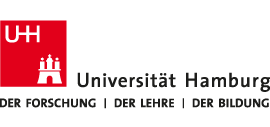
Universität Hamburg
Human-Computer Interaction
Frank Steinicke – www.inf.uni-hamburg.de/en/inst/ab/hci.html
Our group is particularly interested in developing innovative user interfaces for computer-mediated blended realities in which the two-dimensional digital world and intelligence meets human intelligence and the three-dimensional physical world we live in. The figure shows some examples from research project from our group in this context: Super-Natural spatial user interaction: We developed 3D user interfaces, which allow, for instance, humans to explore large-scale virtual environments in the most natural way, i.e., by real walking. Smart blended agents: We explore the interaction with artificial humans in a blended space in which virtual humanoid representations can affect real-world objects by using robotics and chemical engineering. Telepresence and collaboration with mixed reality robots: We consider novel approaches for human-robot interaction by combining mixed reality and physical robots. Multi-user interaction in social blended reality spaces: We develop techniques for collaborations and social interaction between humans, avatars and agents. As a common theme in all of these projects, we try to bridge the gap between the semantic differentials of real and virtual, artificial and natural as well as human and artificial intelligence, resulting in mixed spaces in which the borders disappear.
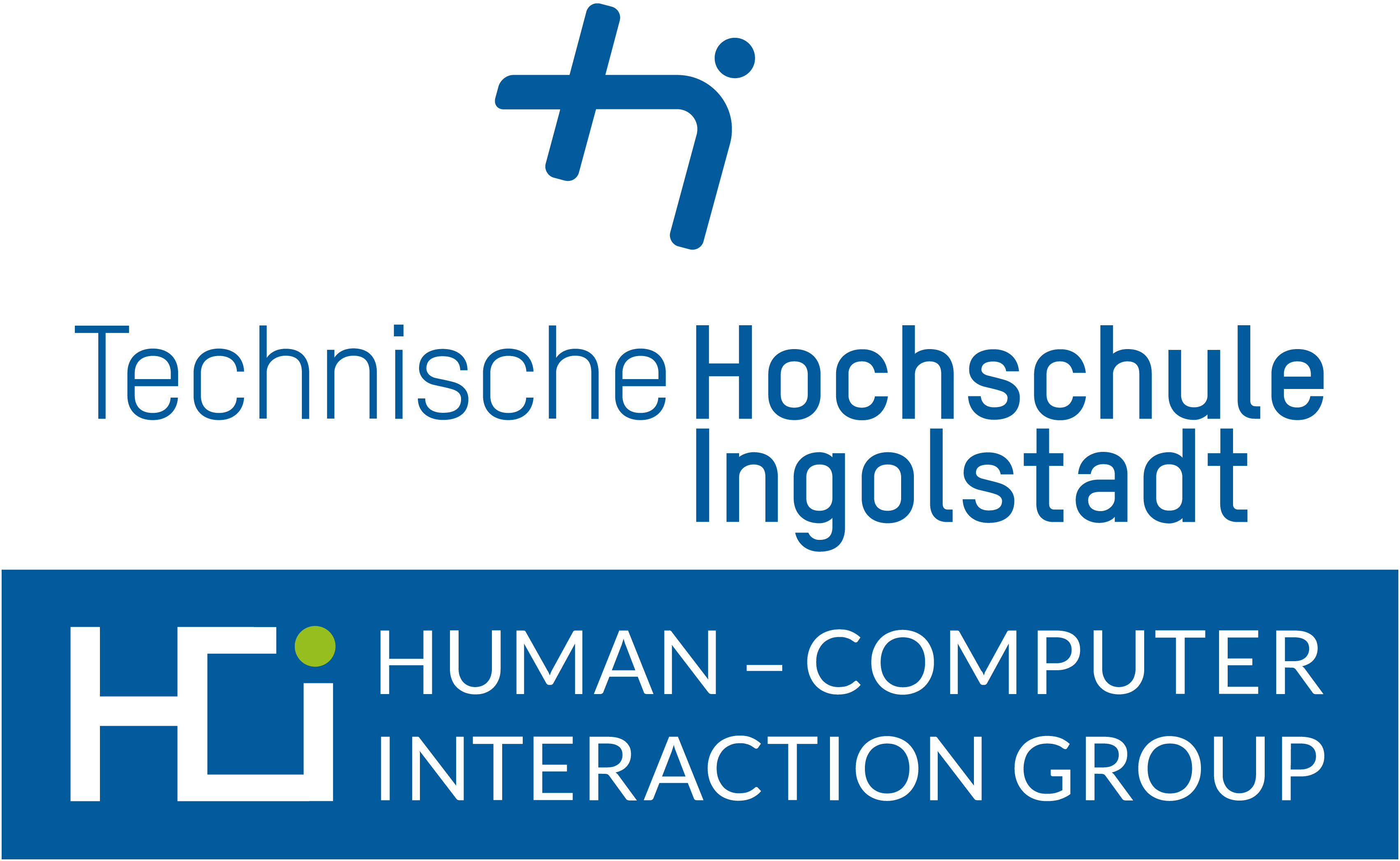
Technische Hochschule Ingolstadt (THI)
Human-Computer Interaction Group
Andreas Riener – hcig.thi.de
The Human-Computer Interaction Group (HCIG) at THI is an interdisciplinary team composed of computer scientists, media engineers, usability/UX researchers, and psychologists interested in hypothesis-driven experimental research in the broader area of pervasive computing and ubiquitous systems with particular focus on usability research for intelligent user interfaces and user experience design . The group is headed by Prof. Dr. Andreas Riener as was founded in January 2016.
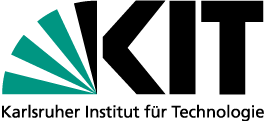
Karlsruhe Institute of Technology (KIT)
Institute for Anthropomatics and Robotics (IAR)
Computer Vision for Human-Computer Interaction Lab
Rainer Stiefelhagen – www.szs.kit.edu
The Center for Digital Accessibility and Assistive Technology (ACCESS@KIT) – the former Study Center for Visually impaired students (SZS) supports and advises visually impaired students and prospective students in all study courses offered at KIT. We also play an active role in teaching and in research on Assistive Technology. ACCESS@KIT works closely with the Computer Vision for Human-Computer Interaction research group.
Information Systems & Service Design
Alexander Mädche – https://h-lab.iism.kit.edu/index.php
The human-centered systems lab (h-lab) headed by Prof. Dr. Alexander Maedche (research group “Information Systems I”, formerly ISSD) focuses in research, education, and innovation on designing human-centered systems for better work & life. Our mission is to create impactful knowledge for designing human-centered systems for human productivity and well-being through relevant and rigor scientific research. We leverage advanced artificial intelligence (AI) and biosignal sensor technologies and follow a socio-technical research paradigm for increasing human productivity and well-being through human-centered systems. We contribute to the fields of human-computer interaction (HCI) (Mensch-Computer Interaktion) and information systems (IS) (Wirtschaftsinformatik). We believe that delivering cutting-edge knowledge and inspiring education, as well as an ongoing dialog with the public need to go hand in hand to maximize the impact of our work in organizations and society.
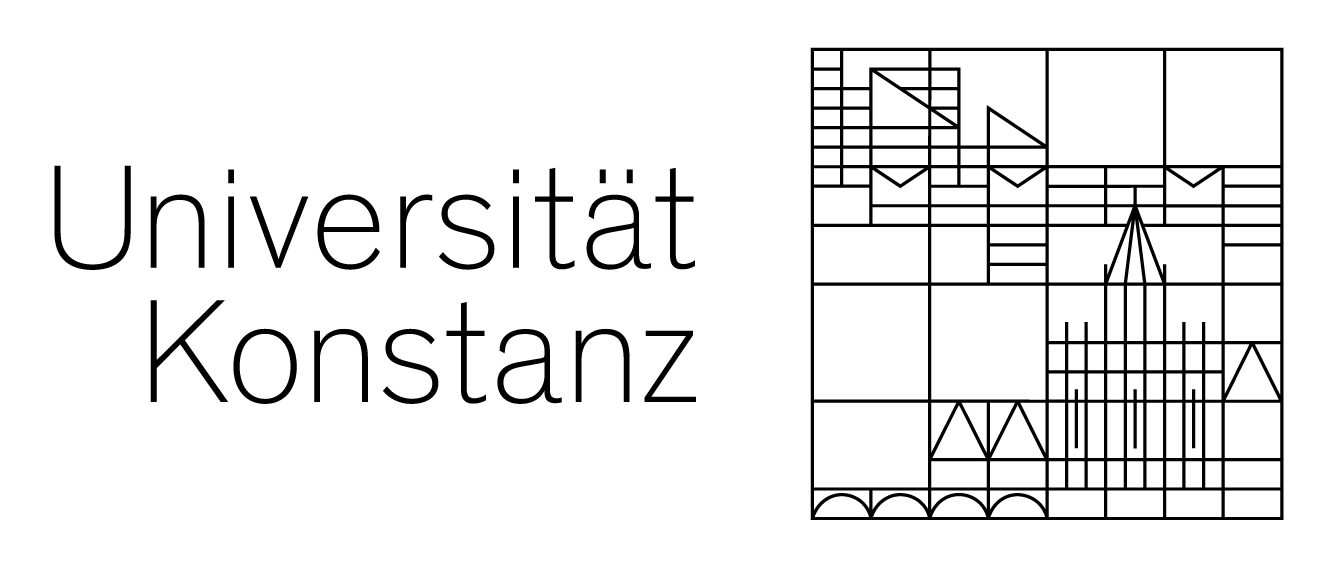
University of Konstanz
HCI Group
Harald Reiterer and Tiare Feuchtner – hci.uni-konstanz.de/
Our goal is to conceive, develop and evaluate novel concepts for human-computer interaction that dissolve the user interface as a barrier between real and virtual, and instead allow the user to seamlessly transition between different realities. We call this extended form of interaction “Embodied Cross-Reality Interaction” and the supporting user interfaces “Transitional Interfaces.” Such interfaces support crossing between different realities: from being in the physical world and using our existing cognitive and bodily skills, to gradually moving into a virtual reality with more advanced or “magical” skills, and back again.

Hochschule Anhalt (Köthen)
Informatik und Sprachen
Arne Berger – www.hs-anhalt.de/hochschule-anhalt/service/personenverzeichnis/ prof-dr-arne-berger.html
Arne Berger is a Professor of Human Computer Interaction at Hochschule Anhalt and is fascinated by the complex, idiosyncratic and unintended interactions between humans and digital technology. His work is influenced by the Scandinavian tradition of Participatory Design, which recognizes that those who will be affected by a future technology should have an active say in its creation. His research focuses on early phases of design and development processes. He is interested in how participation can be initiated and supported by co-design tools and co-design methods, and how it can be sustained by co-design labs. Currently he is particularly interested in the design space of smart connected things and services in the context of the home. With his work he strive to support people in imagining alternative futures, to explore these futures and to critically reflect upon them.
Universität zu Lübeck
Interaktionsdesign und User Experience
Hans-Christian Jetter – https://www.imis.uni-luebeck.de/de/institut/team/hans-christian-jetter
Seit August 2020 ist Hans-Christian Jetter Professor für Interaktionsdesign und User Experience an der Universität zu Lübeck. Die Forschungsschwerpunkte der Professur liegen im Bereich Interaktionsdesign für eine bessere Mensch-Computer-Interaktion und insbesondere für bessere eine Mensch-Daten-Interaktion. Dazu gestaltet, implementiert und evaluiert die Professur neuartige mobile, ubiquitäre und kollaborative Systeme, z.B. interaktive Tische, Wände, Räume oder die nahtlose Interaktion über mehrere Geräte hinweg. Diese unterstützen Benutzer:innen bei der Exploration, Visualisierung und Interpretation komplexer Datensätze und Modelle. Zunehmend spielen hier auch Mixed-Reality-Technologien wie Augmented Reality oder Virtual Reality eine Rolle, z.B. für Immersive Analytics.
Human-Computer Interaction und Usable Safety Engineering
André Calero Valdez – https://www.imis.uni-luebeck.de/de/institut/team/andre-calero-valdez
André Calero Valdez has been a Professor of Human-Computer Interaction and Usable Safety Engineering at the University of Lübeck since 2022. He conducts research on human-technology interaction and usable safety in various application areas (e.g., eHealth, recommender systems, social media, information visualization, technology acceptance, Industry 4.0) using methods from computer science, psychology, and computational social sciences.
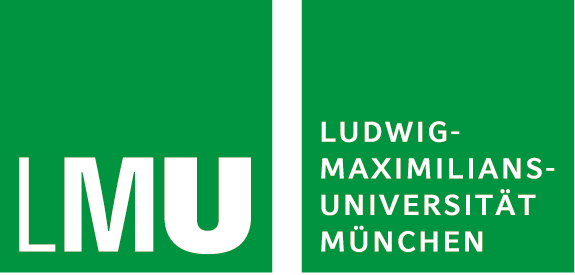
LMU Munich
Applied Informatics and Media Informatics
Johanna Pirker – www.mimuc.de
Sven Mayer – http://www.medien.ifi.lmu.de/
Human-Computer Interaction
Andreas Butz – http://www.medien.ifi.lmu.de/
The Media Informatics and Human-Computer Interaction working group consists of two chairs, the Chair of Applied Computer Science and Media Informatics and the Chair of Human-Computer Interaction. Both carry out research on the borderline between human behavior and machine computation. This comprises a large range of topics, including novel interaction technologies, development methodologies and application case studies. We have the goal to make our work visible at an international level and therefore target international research publication media. In parallel we maintain a number of research contacts to local companies for applied research.
Human-Centered Ubiquitous Media
Albrecht Schmidt – https://www.um.informatik.uni-muenchen.de/index.html
In our group, we conduct research at the crossroads of human computer interaction, media technology, and ubiquitous computing. We are involved in different research projects, including European Projects (H2020) and nationally funded projects (DFG, BMBF). Our research interests are in challenges that pose hard questions for basic research, but at the same time have a clear application to specific domains or impact on society. The overall research question is: how can we enhance human abilities through digital technologies. In a recent IEEE Computer article we have outlined this vision of amplifying the human mind through digital technologies. With increasing automation and with autonomous systems becoming ubiquitous, the challenges for keeping the human in the loop and in the center becomes even greater and more important. We have suggested a novel interaction paradigm “Intervention user interfaces” to reflect this.

Bundeswehr University Munich
Usable Security and Privacy Group, Research Institute CODE
Florian Alt – https://www.unibw.de/usable-security-and-privacy
The Usable Security and Privacy Group is part of the Research Institute CODE at the University of the Bundeswehr, Munich. The group is headed by Prof. Florian Alt. We explore the design of secure and privacy-preserving systems that blend with the way in which users interact with computing devices. In particular, our research focuses on understanding users’ behavior in security critical contexts, in building and enhancing security and privacy mechanisms based on users’ behavior (behavioral biometrics)and physiology (physiological security) and in understanding and investigating threats that emerge from novel ubiquitous technologies (ubiquitous security). Specific application areas are mixed reality, smart homes, and social engineering. In the context of our research we employ and enhance methods commonly known from Human-Computer Interaction. These include but are not limited to user-centered design and iterative prototyping. Our work is strongly centered around humans, making empirical approaches a fundamental part of our research. To understand behavior as well as to evaluate novel approaches, we conduct studies in the lab and in the field. The group has won best paper and honorable mention awards at CHI, MobileHCI, IDC, and AmI. The research has been funded by the DFG, the ZD.B / Bavarian State Ministry for Education and Science, BMW, the Humboldt Foundation, the DAAD, Google, and the Telekom Innovation Labs.

University of Oldenburg
Media Informatics and Multimedia Systems
Susanne Boll – https://uol.de/en/media-informatics
The Media Informatics and Multimedia Systems Group is working in the fields of Interactive Systems, Ambient Displays, Automotive User Interfaces, and Augmented und Virtual Reality. We develop interactive systems and computing technologies to enhance users’ lives. We focus primarily on mobile and ambient user interfaces, where we explore different novel modalities such as visual, auditory and tactile channels in pervasive displays. We strongly embed our research in the fields of personal health and safe transportation, that serve as major application domains. The group is headed by Prof. Dr. Susanne Boll. She is also a member of the executive board of the OFFIS–Institute for Information Technology in Oldenburg, an associated research institute of the University of Oldenburg. Her research interests lie in the field of multimedia and intelligent user interfaces. She teaches Interactive Systems and Interactive Multimedia in the Bachelor Programme in Computer Science and offers lectures and practical lab courses in HCI, Wearable Computing and Digital Fabrication in the Master Programme in Computer Science. Since recently Susanne Boll is also a co-founder of the new Master Programme in Computer Science „Engineering Socio-Technical Systems“. She is leading several national and international scientific projects with strong cooperation with research experts world wide. She head one of the few leading groups in Europe that works on mobile and ambient user interfaces exploring different novel modalities such as visual, auditory and tactile in pervasive displays.
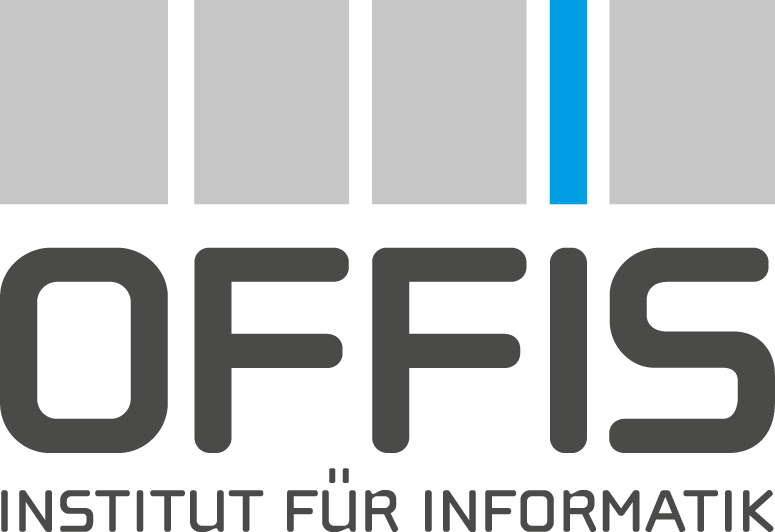
OFFIS – Institute for Information Technology (Oldenburg)
Interactive Systems
Wilko Heuten – https://www.offis.de
OFFIS is the leading research and development institute in Lower Saxony in the field of computer science. As an affiliated institute of the Carl von Ossietzky University, which also conducts basic research that is indispensable for us, we conduct application-oriented research as well as science and technology transfer into society, business and administration. The funding bodies of OFFIS are the state of Lower Saxony, the Carl von Ossietzky University of Oldenburg and professors related to computer science, especially from the Department of Computer Science, as well as from other universities. We perform technically and scientifically outstanding work for innovative and application-oriented research. Our research is based on people, their needs and the need to preserve the environment. We share our research results with everyone through widely available publications. We reflect our research on ethical principles and follow the standards of good scientific practice. Research done for and on weapons has no place in OFFIS.
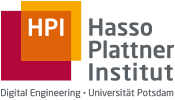
Universität Potsdam
Human Computer Interaction Lab
Patrick Baudisch – https://hpi.de/baudisch/home.html
We believe that computer science and mechanical engineering are about to unite. In the future, users will solve mechanical problems by digitizing the involved objects using 3D scanners, solving the problem in the digital domain using the means of computer science, and converting the result back to the mechanical domain using a 3D printer. This will allow solving mechanical problems with the effectiveness and efficiency of computer science, including the ability to scale massively. This will not only change mechanical engineering, but also allow computing to reach its next phase, which is to merge into matter itself, where the physical matter of objects will also perform the computation, rather than separate micro controllers. The role of our group is to drive this unification process, in particular by creating and re-purposing fabrication machines and haptic machinery.
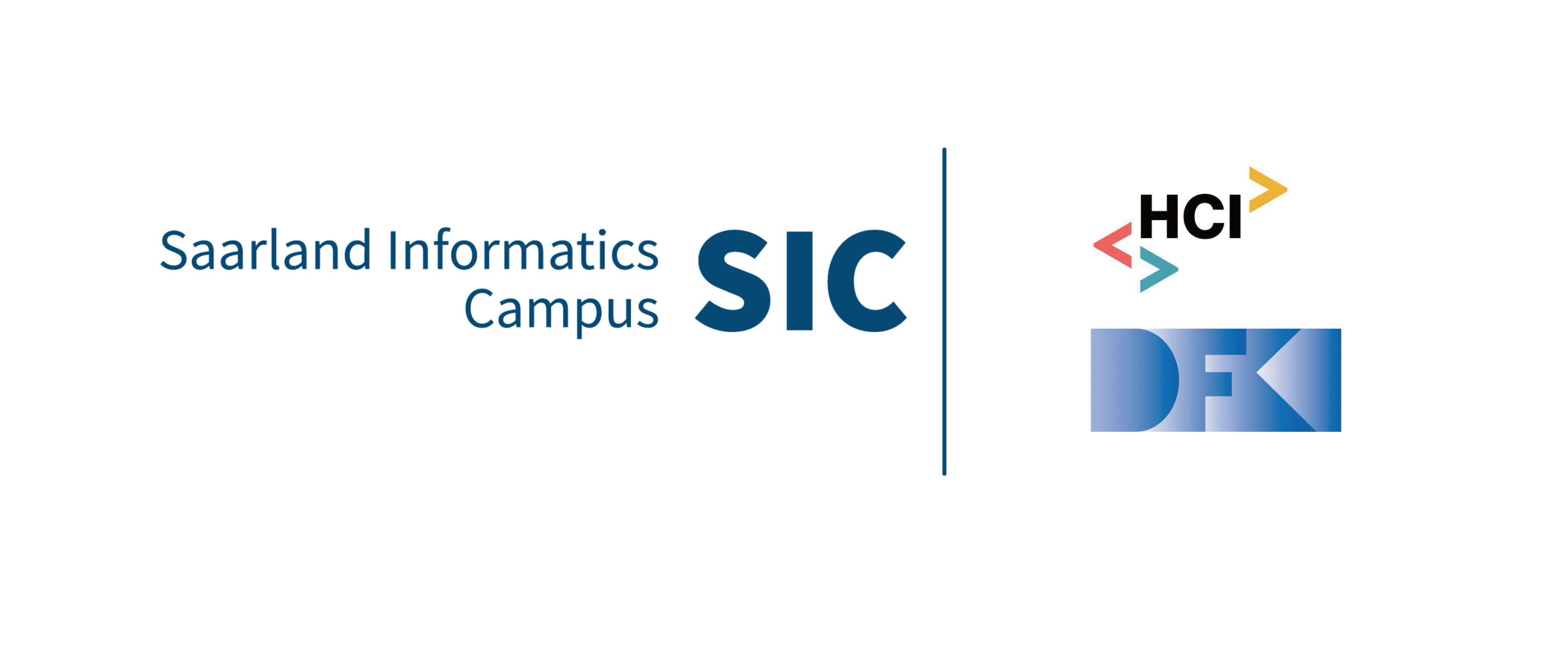
Saarland University
HCI Lab
Jürgen Steimle – hci.cs.uni-saarland.de
Our research mission is to contribute to a next generation of user interfaces that seamlessly merge with the physical world and the human body. These interfaces create more effective, expressive, and engaging interactions with interactive systems and devices. Moreover, they are compatible with challenging mobility contexts and integrate well with real-world activities. This opens up a wide range of applications in various fields, including mobile and wearable computing, robotics, smart home, health and fitness devices. We develop user interface technologies for advanced sensing and displays, invent new concepts for interaction, and empirically study user behavior.
Ubiquitous Media Technology Lab, German Research Center for Artificial Intelligence (DFKI)
Antonio Krüger – umtl.cs.uni-saarland.de
The Ubiquitous Media Technologies Lab (UMTL) is part of the Saarland Informatics Campus and the Cognitive Assistants department (COS) at the German Research Center for Artificial Intelligence (DFKI). Our research activities focus on human factors in interactive systems, in particular, in the fields of multi-modal interaction, ubiquitous computing and gaming.
Computational Interaction Group
Anna Maria Feit – https://cix.cs.uni-saarland.de/
Our research is in the area of Human-Computer Interaction, a highly interdisciplinary field where we actively draw on findings from areas such as Human Factors, Psychology, or Cognitive Science, to connect them with methods from Machine Learning, Optimization, Data Science, and others. Specifically, we develop computational methods to enable the design of intelligent interfaces that make optimal use of people’s abilities, skills, and experiences. Our goal is for interfaces to seamlessly integrate with our real world, as they adapt to a person’s environment, preferences, or cognitive capacities in a way that is predictable and adjustable by end-users.

University of Siegen
Information Systems and New Media
Volker Wulf – www.wineme.uni-siegen.de
We are investigating into innovative Information and communications technology (ICT), especially in the practice fields of cooperative work, community support, entertainment, ageing societies, and sustainability. In doing so, we contribute to the research fields of Human Computer Interaction, Computer Supported Cooperative Work, Ubiquitous Computing, and Software Engineering. The investigations into innovative ICTs in specific domains are related to each other via cross-cutting issues. These issues are currently ubiquitous and software technologies, methods of participatory design, end-user development, integration of organization and technology development, and the foundations of design science.
Computer Supported Cooperative Work and Social Media
Volkmar Pipek – https://www.cscw.uni-siegen.de/
We are an interdisciplinary research group of the University of Siegen dealing with IT-supported cooperations between humans. Particularly we deal with questions of the arrangement and acquirement of cooperative software systems in organizations, questions about communication based knowledge management and also with the support of communities. The last topic involves questions of social structuring by and with information technology (for instance in the fields of E-democracy or in civil security). Computer-Supported Cooperative Work / CSCW is an interdisciplinary field of research which includes not only methodology and contents of Computer Science and Information Systems, but also disciplines of business administration, organizations theory, ergonomics, sociology, psychology and anthropology/ethnography. Seen from the view of Computer Science CSCW is a subarea of Information Systems and HCI (Human-Computer Interaction).
Experience & Interaction Design
Marc Hassenzahl – http://www.experienceandinteraction.com
The Experience & Interaction Design group headed by Prof. Dr. Marc Hassenzahl explore design between the material and experiential, touching upon industrial, interaction and critical design.
Cyber-Physical Systems
Thomas Ludwig – https://cps.wineme.fb5.uni-siegen.de/?lang=en
Our research group is engaged in research and teaching about the conception and design of (human-centered) cyber-physical systems, its technical development as well as its appropriation by users in different fields of application. Whether production machines or 3D printers, which integrate communication possibilities directly into the hardware and thus enable an exchange of the users at the machine; augmented reality glasses, which project the inner life of everyday objects directly into the field of vision; or situated public displays, which enable the coordination of voluntary helpers in case of damage, the focus is always on the complex interplay of virtual and physical world and their utilization for humans through the use of cyber-physical systems. Cyber-physical systems (CPS) describe the coupling of physical or biological components that can be integrated, observed and controlled via a computing unit. Essential components of cyber-physical systems are information and software technology components with mechanical or electronic components that communicate with each other via a communication infrastructure (e.g. the internet). Today, cyber-physical systems can be found wherever complex physical systems can be improved by communicating with the virtual, digital world. Examples are smart production facilities (industry 4.0) or e-health. Since an essential aspect in the design of CPS is its applicability in complex social systems, user-centered and qualitative design methods are used above all to be able to design cyber-physical systems with practical relevance under the idea of the assistance system. Therefore, there are close connections to the discipline of Human-Computer Interaction.
IT for the Ageing Society
Claudia Müller – https://italg.wineme.uni-siegen.de/
The Chair of Information Systems, esp. IT for the Aging Society (Prof. Dr. Claudia Müller) researches and teaches at the interface of demographic and digital change. The focus is on the practice-based and participatory design of socio-technical infrastructures and digital solutions in the field of “health & aging”. The objectives include maintaining and increasing the social participation of older and vulnerable people, their mobility and independence, as well as maintaining or improving their well-being, health and quality of life at home.

Ulm University
Institute of Media Informatics – Human-Computer-Interaction Group
Enrico Rukzio – https://www.uni-ulm.de/in/mi/hci/
The Human-Computer-Interaction Group is located at the Institute of Media Informatics at Ulm University, and is headed by Enrico Rukzio. We are interested in designing intelligent interactive systems that enable people to be more efficient, satisfied and expressive in their daily lives. We design, implement (hard- and software) and evaluate novel interaction techniques, applications and services which either solve existing problems or provide new opportunities. Our research approach is based on design thinking, user centred design and iterative prototyping. At this, we involve potential users in all steps of the process, use a large body of low- and high-fidelity prototyping techniques and conduct a large number of user studies, evaluations and field tests. Our research focuses on the design of novel interaction concepts, devices and applications in areas such as mobile and wearable interaction, projected user interfaces, computerized eyewear, cross-device interactions, interaction in smart environments, human-technology interaction for elderly people, automotive user interfaces and interactive production planning.

Universität Würzburg
Psychological Ergonomics
Jörn Hurtienne – https://www.mcm.uni-wuerzburg.de/psyergo/startseite/
Den Lehrstuhl für Psychologische Ergonomie gibt es seit 2011 am Institut Mensch-Computer-Medien. Das Institut wurde 2010 gegründet. Lehrstuhlinhaber und aktueller geschäftsführender Vorstand des Instituts ist Prof. Dr. Jörn Hurtienne. In der Forschung arbeiten wir interdisziplinär. Psychologischer Sachverstand mischt sich mit Informatik-Kenntnissen und Design-Expertise. Je nach Forschungsgegenstand verwenden wir quantitative, experimentelle oder qualitative Methoden. Wir stehen für ein strikt benutzerzentriertes Vorgehen im Design und verwenden dazu Methoden aus dem Contextual Design, dem Design Thinking sowie dem Partizipativen Design. In unseren Laboren findet man viele Sticky Notes und Material zum Erstellen früher Prototypen, Kameras, Touchbildschirme, VR und AR-Technik, Eyetracker, Arduino-Kits, einen 3D-Drucker, Technik zur Messung physiologischer Daten sowie Spielkonsolen.